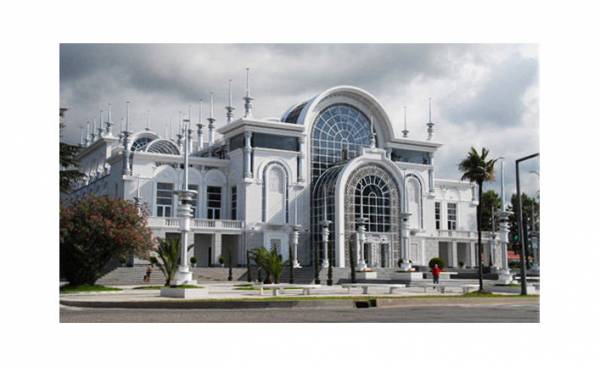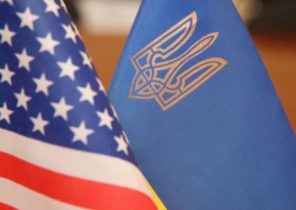
Turkish President Recep Tayyip Erdogan, speaking in the autumn in Rize near the Georgian border, mentioned the Ottoman Empire and said that Ankara’s interests are the same — at least emotionally — with the interests of the sublime Porte.
“Our physical boundaries are different from boundaries in our heart,” he said, adding as an example: “Is it possible to distinguish between Rize from Batumi?” The mention of Batumi, the second by population city in Georgia, has passed almost unnoticed in the international media. But in Georgia it made a stir and raised questions about what Erdogan meant by “the borders in our hearts.”
Turkey’s Ambassador to Tbilisi was forced to explain that the Georgians had “misunderstood” the words of the President. “Turkey is the only neighbor of Georgia that does not have territorial claims to it, — said the Ambassador Levent Gumrukcu. — Batumi is Georgia and Rize, Turkey is, and always will be”. But lately, between Rize and Batumi really is getting smaller differences.
Batumi, with a population of 150 thousand people is the capital of the Autonomous Republic of Adjara located on the South-West of Georgia. Adjara was part of the once part of the Ottoman Empire, but the Turks then ceded it to the Russian Empire in 1878. However, in the last 15 years in this region flowed the river of Turkish investment, and the coastal part of Batumi Shine new luxury hotels and casinos, based mainly on Turkish money. The government of Georgia does not publish data on the specific volume of Turkish investments in the local economy, but, according to a former official of the local administration, they constitute 80-90% of total foreign investment.
One of the Central quarters of the city, before the former Armenian, now full of Turkish restaurants, bars and cafes. Dozens of salons “Thai massage” that serve as a front for prostitution, catering mainly Turkish visitors. The Turkish language in the area can be heard more often than the Georgian, and barkers restaurant welcome guests traditional Turkish “Buyrun, Hosh geldiniz”.
As you grow your business presence, Turkey is seeking to increase political influence on this previously owned her territory. Erdogan began to pay more attention to Adjara issues, supporting, for example, the construction of a new mosque in Batumi and touching upon the Georgian government to close the casinos in this city. In February, as a result of criticism from Turkish officials, the Georgian authorities closed the school in Batumi, associated with Fethullah Gulen.
The residents of Georgia with disbelief observe the growing interest of Turkey to its Ottoman legacy and the growing popularity of prepared by the supporters of the “reunification” of cards on which Turkey expands to the borders of the Ottoman Empire, including, in particular, and Adjara. All this strengthens in Batumi distrust of Turkey. “The historical context very much affects these processes,” — said Ruslan Baramidze, an anthropologist from Georgia State University. Shota Rustaveli, a leading research on the development of Islam in Georgia.
Baramidze noted that it is not only in the fact that during almost three hundred years of Ottoman rule in Adjara the majority of the population of this area converted to Islam, but that their Autonomous status of Adjara is also the duty of the Turkish heritage. Kars Treaty of 1921, which established the border between the USSR and the Turkish Republic, include the provision of Adjara autonomy within Georgia, since the Turkish side demanded that the Muslim character of this territory was respected. “History is always looming in the background, and therefore, the problem of Turkish influence here is felt much stronger than, for example, in Tbilisi,” — said Baramidze.
The previous government of Georgia under the leadership of Mikhail Saakashvili, with his active efforts to attract foreign investors and geopolitical orientation towards NATO, widely opened its doors to Turkish entrepreneurs. The former was then in the opposition party “Georgian dream” tried to use this fact against Saakashvili, taking advantage of the anti-Turkish sentiments during his victorious campaign in the parliamentary elections in 2012. But, after coming to power, “Georgian dream” has changed his tone, and anti-Turkish niche has intercepted more than nationalist party “Alliance of patriots”, is actively used anti-Turkish slogans and, to everyone’s surprise, scored in 2016, a sufficient number of votes for representation in the Georgian Parliament.
Irritation regarding Turkey is most clearly manifested in the form of public opposition to the construction of a new mosque in Batumi. Now the city has only built in the nineteenth century the mosque “Orta”, which, according to Muslim leaders, are not able to accommodate all the incoming believers. One option — which was supported by Turkey, was the restoration of existed here before the Ottoman mosque, which was planned to be named after one of the Turkish sultans. But the plan faced strong resistance from society, largely because of anti-Turkish sentiment, including groundless rumors that a mosque was going to be built on the burial place of Georgian soldiers who fought in the Soviet army against Turkey in 1921. It was decided not to restore the Ottoman mosque and to build a new facility solely on the Georgian money. But no specific plan yet, said Jemal, Paksadze, the former chief mufti of Georgia, now a counselor Ajarian authorities on Islam.
According to local residents, the situation is red, rough Turkish intervention in the Affairs of Adjara. But, Paksadze said that one should not pull one size fits all “educated and uneducated” citizens of Turkey, and also emphasized how good Turkey was made to Georgia, including support for the war with Russia in 2008. Turkey, in particular, has funded the restoration of the 150 homes in Gori, destroyed during the Georgian-Russian conflict.
However, according to Paksadze, in Batumi, the Turks show a proprietary mood. “That relationship was a difficult, you should blame the Turkish citizens, he said. When I worked in the mosque, the Turks came and said: “We all have built here”. And I correct them: “No, it was built by Georgians””. The guard of the mosque Tamaz Tsiteladze supported, Paksadze, saying that “even the Turkish Consul, when leads guests from Turkey, says, “our Adjara”. Consulate of Turkey in Batumi did not respond to a request for comment.
The attitude of local people to a significant Turkish presence is ambiguous and continues to change, said a local journalist Keti Dumbadze. In her opinion, in the first years after the arrival of a Turkish investments in Batumi, especially young women, do not want to work in Turkish companies, considering that the Turkish men are disbanded. But over time the fear dissipated, and people began to appreciate that the Turkish companies offer a good pay for work. Now, young people often try to learn Turkish in order to improve their career prospects.
But social tensions remain. In night clubs and frequent fights between the Turkish and Georgian men, usually because women, as women sometimes are afraid to appear in the Turkish quarter. Men there “staring right at you, — said Dumbadze. — It makes me feel a little bit foreign, and it is an uncomfortable situation, I sometimes try to circumvent the district party”.







